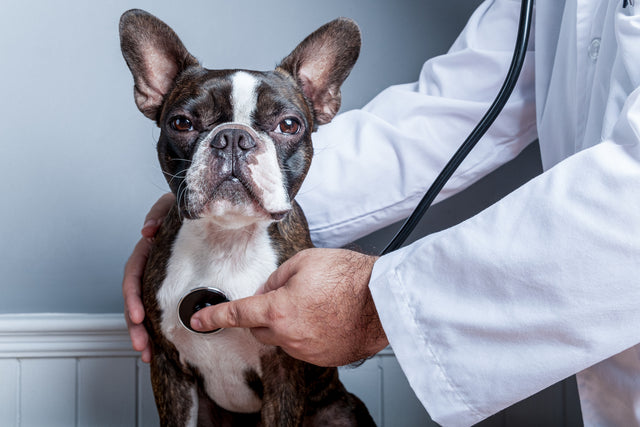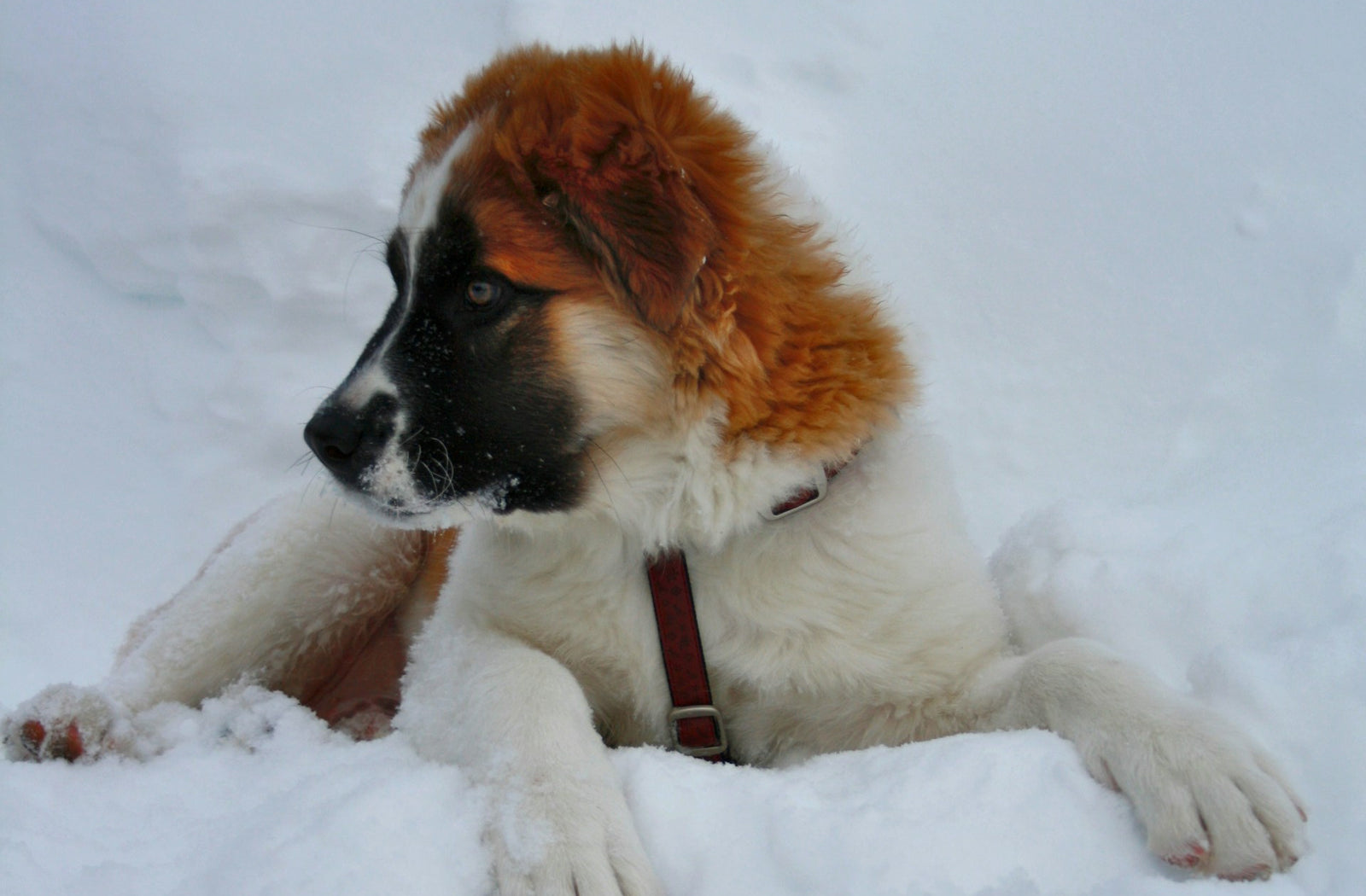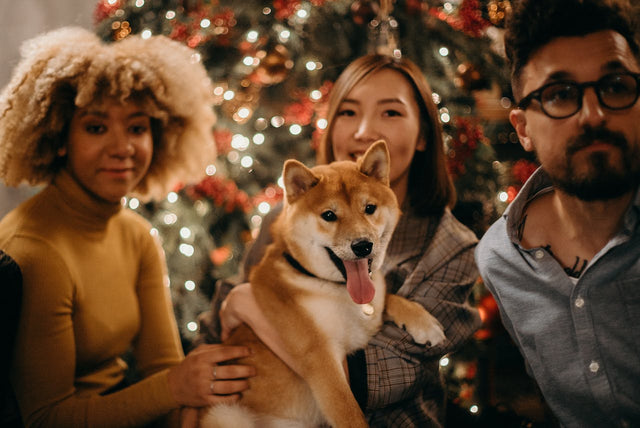As a pet owner, you probably dread the spring and summer when fleas and other pests run rampant everywhere. Most of the time during these seasons is spent fending away these nuisance pests.
You want to snuggle and share warm moments with your pet when the cold season kicks in. Unfortunately, the assumption that you don’t have to fight off fleas in the winter isn’t necessarily true. In this post, our team at Clearly Loved Pets answers, “Can dogs get fleas in the winter?” once and for all.
Do Fleas Die in Winter?
You might wonder, “Do fleas die in winter?” and if you should stop treatment for the same when the cold season kicks in. However, the simple answer is no. These pests find ways to survive the cold weather and cause havoc for your home and pet.

For starters, fleas don’t die or vanish in the winter. Instead, they simply reduce their reproduction as they generally thrive in warmer conditions. Lower temperatures during winter slow down the development of the pest's eggs, larvae, and pupae. When exposed to freezing or near-freezing conditions for too long, fleas at all stages of their life will die, which prompts their adaptive behavior to survive the cold season.
Fleas also tend to migrate indoors to survive the harsh winter conditions. Since the temperatures outside are freezing during winter, fleas in the winter find their way to your dog's fur and settle on your furniture or carpet. Most homeowners maintain temperatures between 65-80 degrees Fahrenheit, the ideal range for fleas to survive or even breed. Therefore, these pests take refuge in your home and might cause an infestation problem without the necessary precautions.
Lastly, flea pupae in the winter can enter a state of diapause to survive the adverse cold conditions. This state is a form of suspended development where the pupae remain dormant until the conditions are favorable for the next stage of development. The pupae can stay in this state for over a year, waiting for the ideal time to hatch.

Can Dogs Get Fleas in the Winter?
Do fleas die in winter? No. Therefore, it’s safe also to assume dogs and other pets can get fleas in the winter.
Fleas reproduce fast, and this cycle helps them survive in winter. Female fleas take 24-36 hours to start laying eggs after biting your pet, and the pests lay about 10,000 eggs in a month. These eggs can end up on your carpet or furniture and hatch, causing infestation in your home.

Fleas in the winter find dogs through jumping, the same way they find them during warm seasons. A flea can leap a distance of 13 inches, about 200 times their body length. When your dog gets close to these pests, they jump on your pet and find a habitat in their fur where they enjoy the warm temperature of the host.
Another way dogs can get fleas during winter is through wildlife reservoirs such as stray cats, raccoons, and squirrels. These animals may carry fleas into your yard, exposing your dog to potential infestation. Even in winter, your dog will occasionally visit your yard, and if stray animals carry fleas there, your pet risks getting them.
Effective Flea Control Methods for Dogs in Winter
Effectively controlling fleas in winter requires a comprehensive approach that addresses grooming and a proper diet. With these strategies, you can protect your canine companion, ensuring they enjoy a flea-free winter and remain comfortable throughout the year. Regular diligence and proactive measures will go a long way in safeguarding your dog's well-being from these persistent pests.
Invest in Flea Products and Treatments for Dogs
You should continue treating your dog in winter to keep your pet fleas-free. Flea treatment should include your home and yard to keep the environment safe. There are various products you can use for this treatment.

Use shampoo and a protective collar to treat your dog for fleas during winter. Flea and tick shampoo kills adult fleas and prevents eggs from hatching for 30 days. If your dog is fond of going outside, use the flea control collar for dogs to protect it from pests. The protective collar remains active for up to seven months, ensuring your dog can venture outside and remain fleas-free.
Tropical treatments are also an effective way of keeping your dog free from fleas in winter. This treatment prevents fleas from “reinfesting” your dog for up to 30 days, ensuring you can cuddle freely. It is advisable to talk to your vet to establish a tropical treatment ideal for your dog.
Furthermore, consider treating your home to avoid flea infestation. Your home has various treatment options, including home sprays, indoor foggers, and carpet sprays. Treating your home is essential because fleas move indoors for warmth during winter.
Lastly, you should treat your yard to keep fleas away. Yard and garden sprays are effective in this type of treatment. These sprays kill fleas in all their life cycles and protect your yard for up to four weeks. It helps your dog to venture into the garden without fear of carrying fleas back to the house.
Groom Your Dog Regularly During Winter
Regularly brushing and bathing your dog is an effective way of controlling flea infestation. These practices keep your dog clean and allow you to react to fleas before they become a menace.
You should brush your dog at least three times a week, irrespective of its fur size. The habit allows you to establish whether your dog has fleas or not. If you find any sign of fleas on their skin or fur, such as small red bites or droppings, you can take the necessary measures to eliminate them. Brushing also helps avoid matting if your dog is long-haired to prevent discomfort.
When grooming, you must know which parts of the dog’s body fleas like invading. Pay attention to your dog's tail, belly, and neck, as fleas love these parts. You can also watch between toes, eyelids, and elbows, as pests will likely invade these parts.
Your Dog’s Diet Should Comprise High Quality Food
The quality of food determines the health of your dog's hair and skin. Your dog's fur comprises about 95% protein, and 25-30% of the protein the dog takes supports the well-being of its skin and hair. Therefore, feeding your dog with fatty acids such as omega 3 and many proteins is essential. This diet maintains healthy skin and hair, which is crucial in defending your dog against fleas and other pests.
Keep Dogs Indoors All Winter Long With A Clear Pet Pen
Although it’s helpful to know the answer to the question, “Can dogs get fleas in the winter?” it’s equally important to know how to best protect your dog or other pets from fighting fleas in the winter. Sometimes, the preventative measures mentioned above aren’t enough to protect your furry friend — you need something more.
If you are looking for a quality solution that lets you keep your dog or other pet indoors for the winter instead of out in your fenced-in backyard, look no further than Clearly Loved Pets.
Our clear pet pens keep small dogs safe while also allowing you and your pet to still interact and see each other. This cuts down on pet anxiety and increases pet-human socialization during the winter months, when most of us tend to battle seasonal depression. Our customer reviews can help you determine the best size and choices from our variety of options, and we know you’ll be just as thrilled with your new pet pen as others have been.
Although animals can get fleas in the winter, they don’t have to if you follow our recommended precautions and spend most of your time indoors using your new Clearly Loved Pets clear pet pen.
More stories



